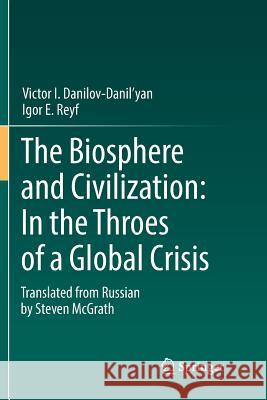The Biosphere and Civilization: In the Throes of a Global Crisis » książka
topmenu
The Biosphere and Civilization: In the Throes of a Global Crisis
ISBN-13: 9783030097936 / Angielski / Miękka / 2019 / 265 str.
Kategorie:
Kategorie BISAC:
Wydawca:
Springer
Język:
Angielski
ISBN-13:
9783030097936
Rok wydania:
2019
Wydanie:
Softcover Repri
Ilość stron:
265
Waga:
0.39 kg
Wymiary:
23.39 x 15.6 x 1.5
Oprawa:
Miękka
Wolumenów:
01
Dodatkowe informacje:
Bibliografia
Wydanie ilustrowane
Wydanie ilustrowane











